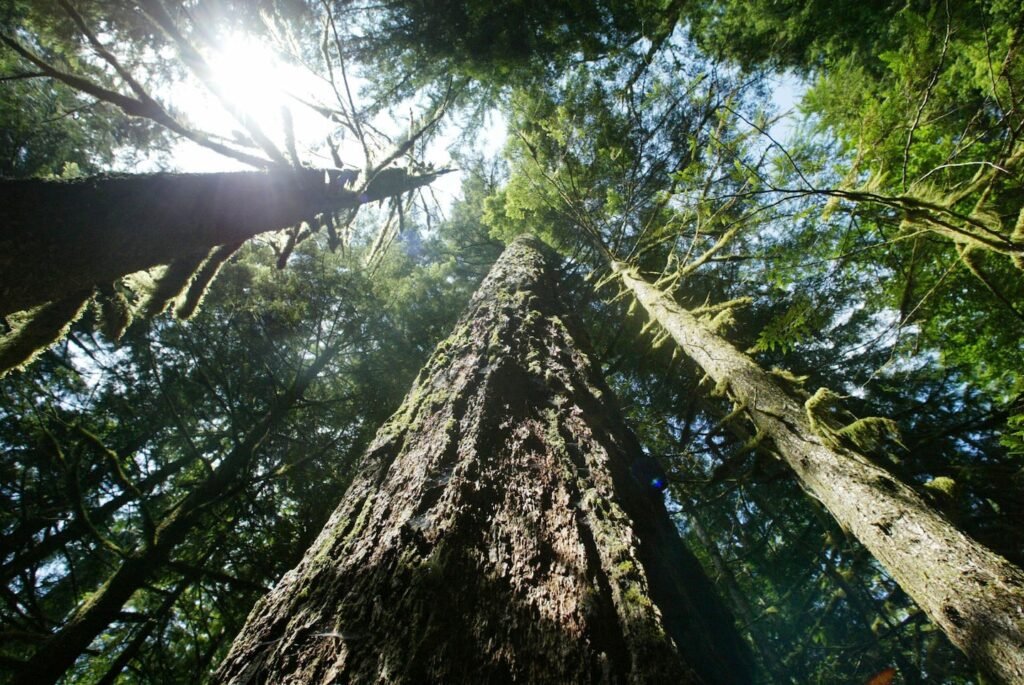The idea that being in nature can have therapeutic benefits is not new, but it’s only in the last 20 years or so that researchers have begun to document the health benefits of forest bathing. Li Qing, a physician and professor at Nippon Medical School in Tokyo, is widely considered the founder of the field of forest medicine. He and his colleagues have authored dozens of peer-reviewed papers documenting the health benefits of forest therapy.
A meta-analysis of 20 clinical trials found that forest bathing can lower blood pressure, in some cases as effectively as antihypertensive drugs. Other studies have found that forest bathing reduces hormones linked to metabolic disorders such as obesity and diabetes. Forest bathing has also been shown to reduce anxiety and reduce symptoms of depression, and some data show an association between forest bathing and increased levels of anti-cancer proteins.
Lee’s hypothesis for the wider effects is that being in a forest reduces stress hormones such as adrenaline and cortisol. This reduced stress response relaxes the brain, lowers blood pressure and influences other body systems, including the endocrine and immune systems.
“The relaxing effects of forest bathing begin to appear 20 minutes after you start, and reach their peak effect after two hours,” Lee said in an interview. “The longer you practice forest bathing, the greater the effects.”
Lee said that while forest therapy is just starting to take off in the United States, it’s already well established in Japan, with 65 certified “forest therapy bases” across the country. Some Japanese companies have contracted with these bases to promote employee health and stress management, and some even cover the cost of forest bathing for employees through their company insurance.
In Japan, forests cover 67 percent of the country’s land area, making them more accessible than in the U.S., so I was pleased to learn that city dwellers can experience the benefits of forest bathing simply by visiting their local park. Lee himself lives in central Tokyo and practices forest bathing by taking weekly walks through the city’s parks.
He advised that forest bathing can include a variety of activities. “Find a place you like and sit for a while and read or just enjoy the view,” he said. “You can also do tai chi, yoga or have a picnic.” Walking is great, but he recommended not to push yourself too hard and to rest if you get tired.
Melanie Choukas Bradley, a Washington, DC-based naturalist and forest bathing expert, offered additional advice for those wanting to give the practice a try.
“Any time you spend in nature is good for your health,” she told me. “Take a five-minute walk to your backyard, look up at the sky through the branches of the trees, feel the breeze, the sun, and the rain on your face.”
When Choukas Bradley leads guided walks, she asks participants to do simple exercises that stimulate the senses, such as asking them to pay attention to what is moving.
“It sounds so simple, but it’s a really powerful mindfulness practice,” she said. “Notice the slightest movement of a leaf, or an ant crawling on the ground, or a spider or a spiderweb. You really notice so many things, and it really calms your mind.”
Another exercise is to stand with your back to a running stream and put one ear in front of you, which amplifies the sound of the water, then remove your hand and see how much quieter the sound becomes.
“Even just closing your eyes in nature amplifies the sounds around you and focuses you on the sounds and smells,” explains Choukas Bradley. She encourages people to connect with nature wherever they are, even if it’s just to look at a single tree. “It’s really a mindfulness practice,” she says.
In my opinion, the potential preventative benefits of forest bathing are compelling enough that it’s worth people trying it. Another reason is that one of the key tenets of the forest medicine movement is to promote not only human health but also the health of forests. By practicing forest bathing, we are celebrating conservation and spreading the message that human well-being is inextricably linked to the well-being of the natural environment around us.
Have you tried forest bathing? Any advice? I want to hear your voiceReaders’ comments and questions will be featured in future issues. health check Newsletter.

